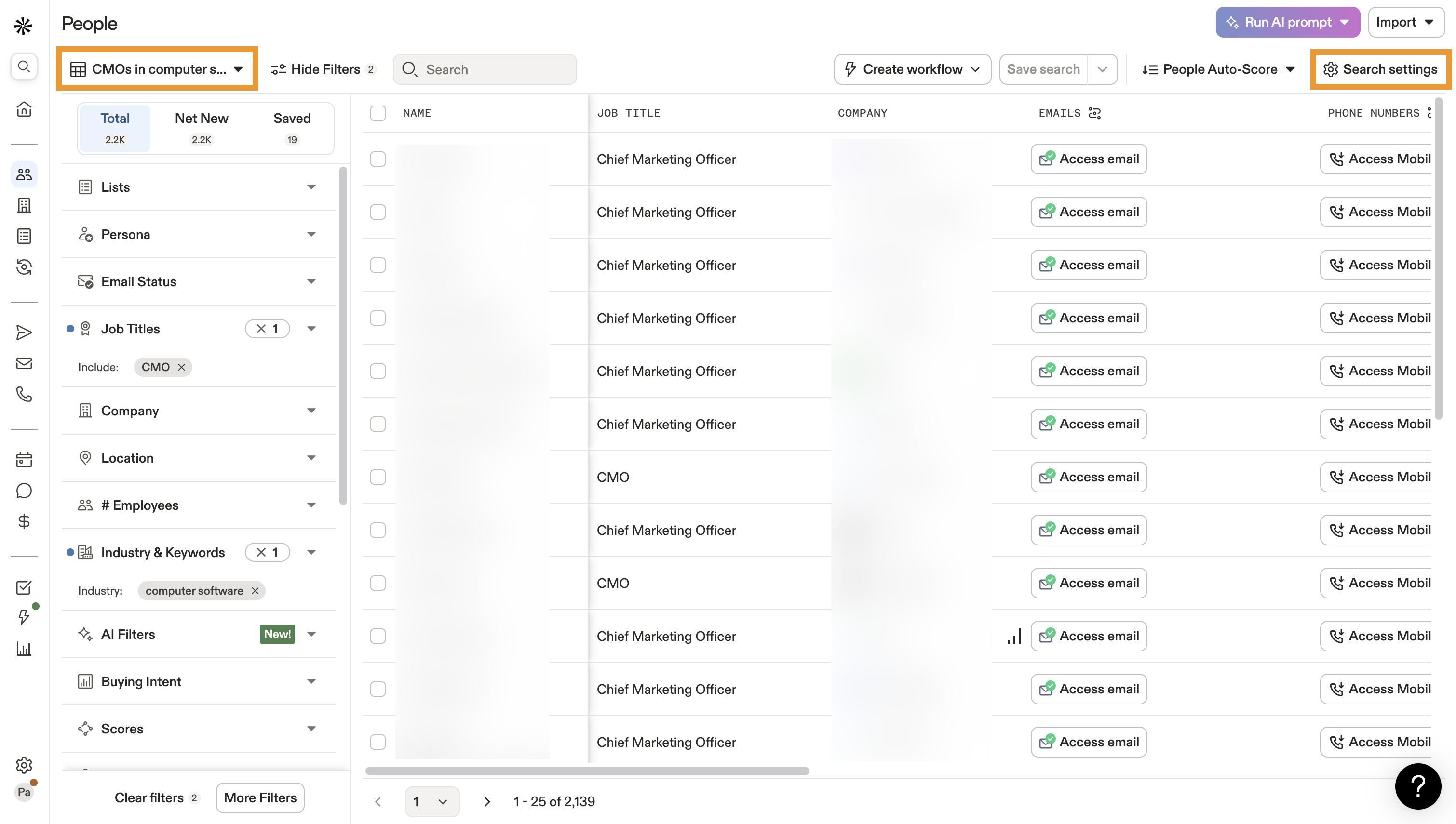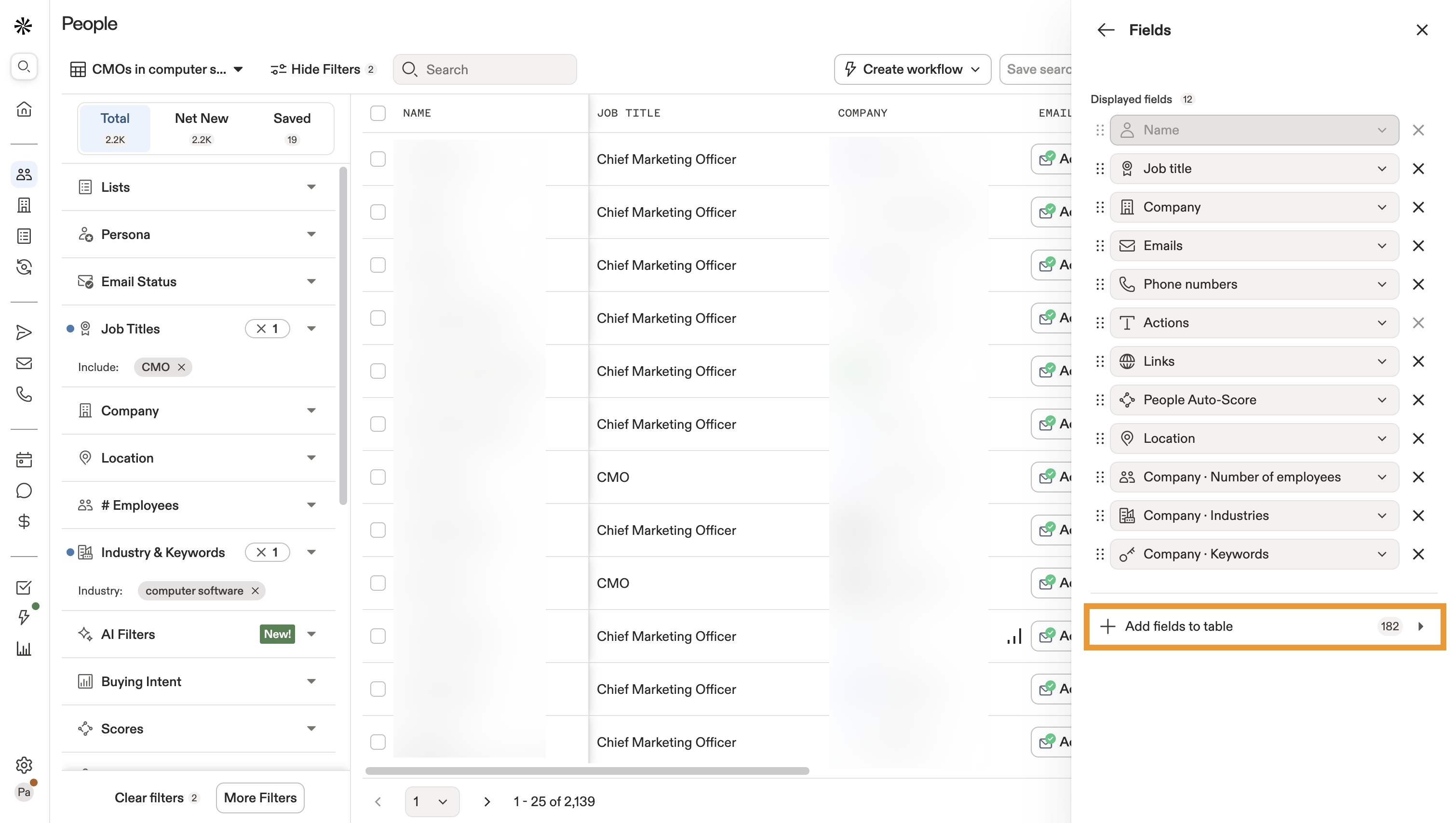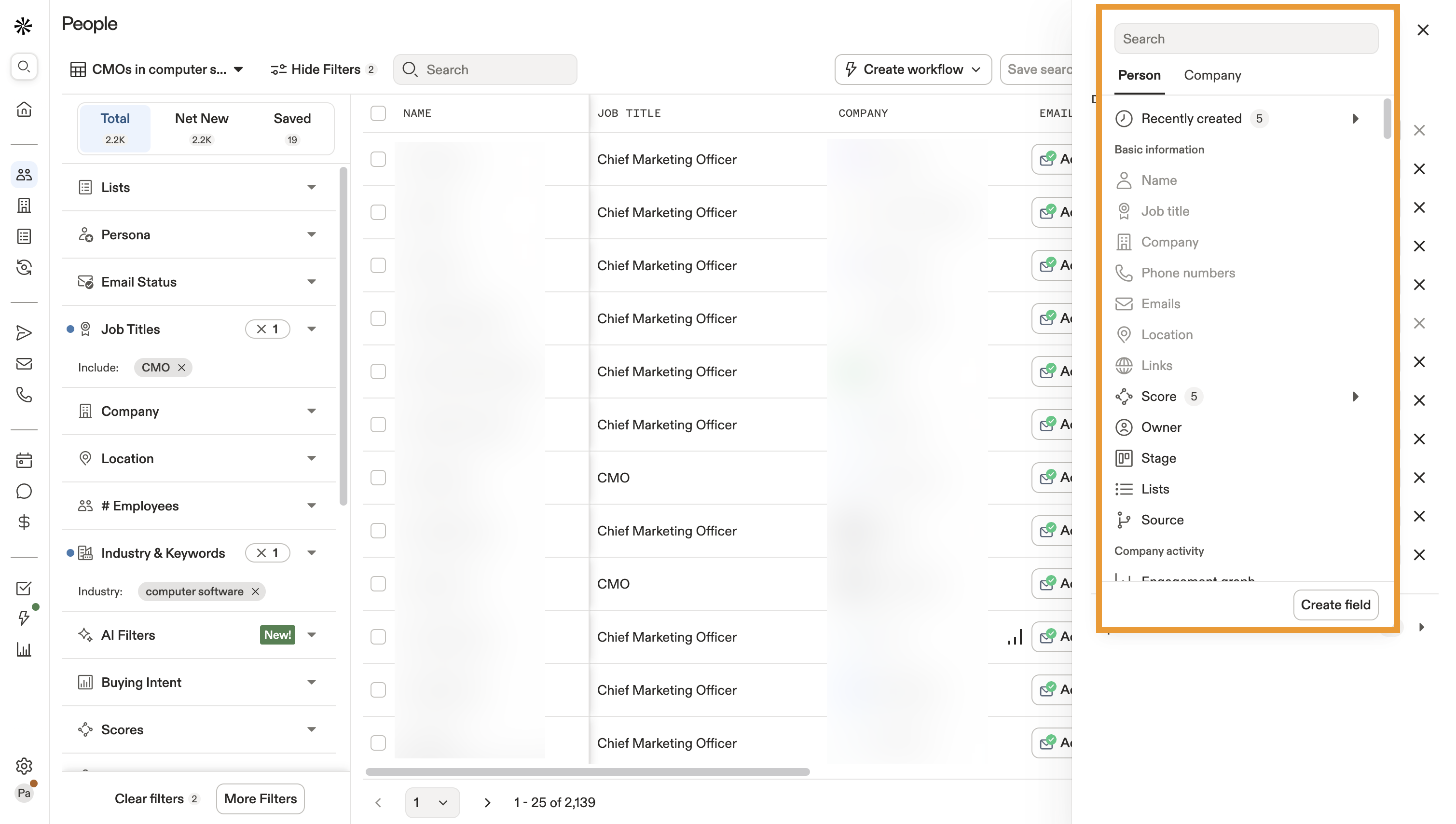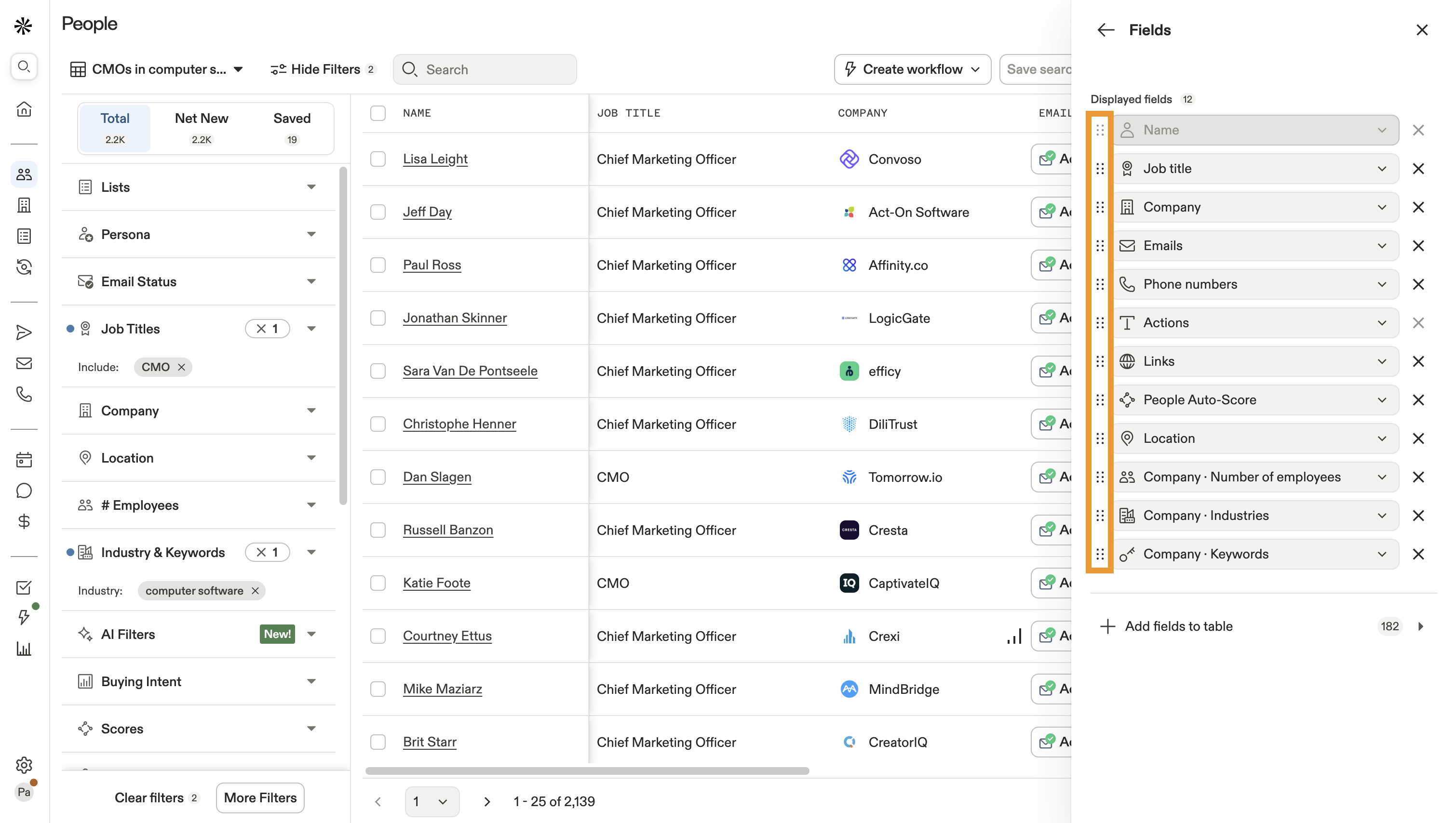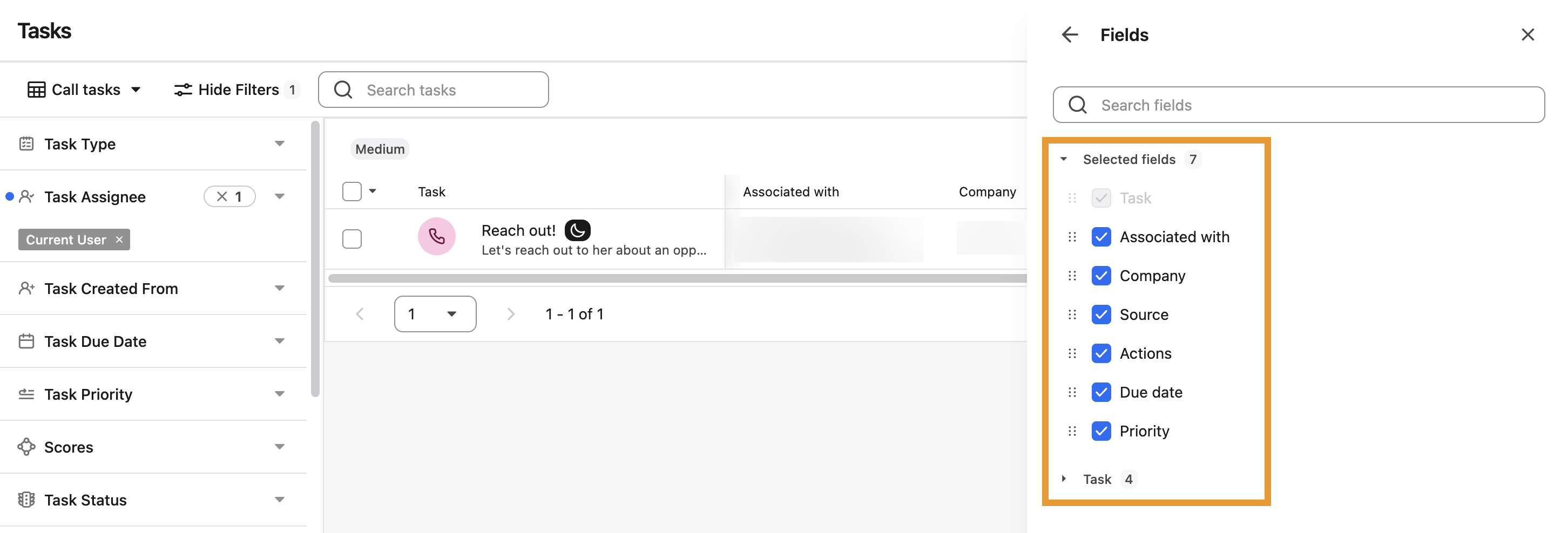Overview
When you save a search view to search for people, companies, deals, or tasks, you can configure your view's layout according to your preferences.
Customize how you want to visualize your search data by selecting a layout style, selecting which fields to display, and grouping information by stage or status.
Check out the following sections to learn how to configure custom layouts for your saved views.
People and Companies
Customize views for people or company searches by adding and rearranging fields. You can include data for additional basic information, activity, or custom fields when you create and save a view.
To add fields to your view:
- Launch Apollo and click People or Companies.
- Select a view to use for your search, then click Search settings. You can stay in the default view or select one of your saved views.
- Click Fields.
- Click Add fields to table.
- Check any basic, activity, or custom fields you want to include in your search results for this view.
- Under Displayed fields, drag and drop fields to rearrange their display order.
All people and company search views include the Name field by default. This field can't be removed.
Deals
You can customize search views for deals by changing the layout style, grouping results by stage, or adding fields.
To customize a view for deals:
- Launch Apollo and click Deals.
- Select a view to use for your search. You can stay in the default view or select one of your saved views.
- Click View options.
- Under Layout, select one of the following options:
- Table
- Kanban board
- Click Group by > Stage to group your search result data by selected deal stages. Check one or multiple stages to group search results, and drag and drop stages to organize how grouped deals display.
- Click Fields > Add fields to table to select additional basic information, activity, revenue, or custom fields to include in your search results.
Tasks
Similarly to deals, you can customize views for tasks by grouping results by stage or adding fields.
To customize a view for tasks:
- Launch Apollo and click Tasks.
- Select a view to use for your search. You can stay in the default view or select one of your saved views.
- Click View settings.
- Click Group By to group your search result data by the following categories:
- Due date
- Priority
- Status
- Type
- Check each date, priority, status or type you want to use to group task search results. Drag and drop your selections to change the order of your search results.
- Click Fields to add or remove task fields in your view layout. Drag and drop to reorganize the order of fields displayed in your search results.
